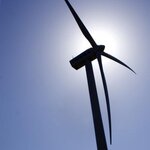
If you've shaken your head at MTBE or ethanol, you know we do a poor job of projecting the real effect of energy sector alternatives accurately. Advocates are happy to make up numbers but that doesn't work as well after four years of government-funded alternative energy optimism.
Advocates are lately trumpeting solar and wind power again. Unlike fossil or nuclear energy, which are basically always on, solar and wind need to be stored if we don't want to retreat to the 19th century. That means a need for batteries. Because batteries cause acid rain, and we spent a lot of time trying to…
